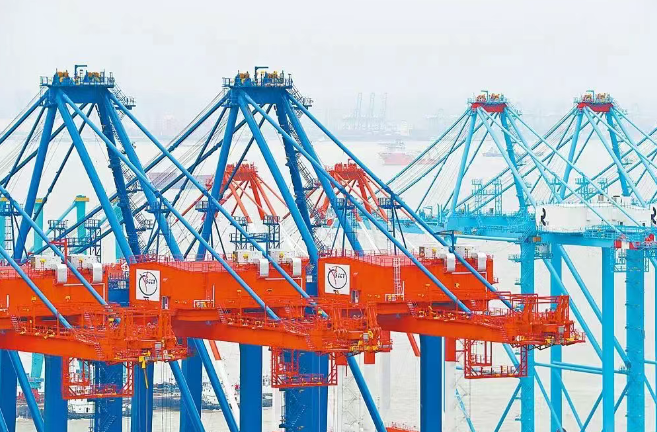The United States has imposed port fees on Chinese vessels. Latest developments
In mid-April, the United States Trade Representative Office (USTR) announced that the plan to impose port fees on Chinese vessels would be implemented on October 14th, aiming to revitalize the US shipbuilding industry and challenge China's dominance.
Foreign media reports indicate that the U.S. Customs and Border Protection Agency (CBP) has been designated as the entity responsible for the collection and enforcement of the new port fees. Vessels that fail to pay the fees may have their cargo loading or departure permits prohibited.
According to a report by foreign media Lloyd’s List, sources familiar with the matter disclosed that the financial office of CBP is collaborating with the US Department of the Treasury to establish a new independent payment form on the official US government payment website Pay.gov. Due to the potentially large amount involved, these fees will be handled separately from the standard CBP user fees and tonnage taxes.
According to the current plan of the USTR, for ships owned or operated by Chinese companies, the fees will be imposed starting from October. Each voyage at U.S. ports will cost $50 per net ton, and by 2028, the fee will increase to $140. Taking a 10,000 TEU (standard container) container ship as an example, with a typical net tonnage of 70,000 tons, the cost will rise from $3.5 million to $9.8 million within three years.
It is worth noting that if a vessel that is supposed to pay the port fee fails to do so, it may be prohibited from carrying out cargo handling operations or its departure permit may be withheld until the payment is confirmed to be completed.
Insiders have pointed out that although these details may still be subject to further adjustments, based on the information that has been disclosed, during the negotiations of the China-US trade agreement, the US government is actively promoting the implementation of this port fee plan.
Industry experts warn that the new charges will not only increase the operating costs of Chinese vessels, but also raise logistics costs in the United States, thereby putting pressure on trade. At the same time, these charges have also brought contractual uncertainties for shipping companies that are entering the US market.
The Baltic International Shipping Association (BIMCO) recently released new shipping terms, requiring shipowners to disclose vessel information and pre-determining that the responsibility for USTR fees will be borne by the charterer.
声明:转载此文是出于传递更多信息之目的。若有来源标注错误或侵犯了您的合法权益,请作者持权属证明与本网联系,我们将及时更正、删除,谢谢。
2025-08-08来源:
Recent news

80% of the gantry cranes are made in China. US ports call for postponing the tariff increase.

Boat, boat, boat! More than 60 new ships are under construction in Shanghai's three big Ships

Will the US impose 60% tariffs on all Chinese goods? Response of the Ministry of Foreign Affairs

Maersk set up an international transshipment center in Lingang, Shanghai

"Sea Hercules" and new Chinese ships Hudong China opened a new beginning of the New Year ship delivery

More than 500 ships! Ningde time on board

Swim upstream! Chinese shipping company to carry out Red Sea express


